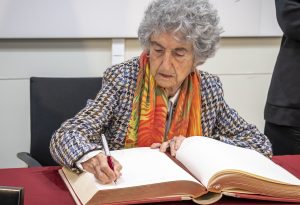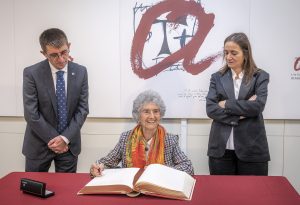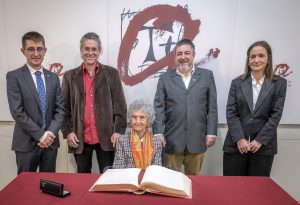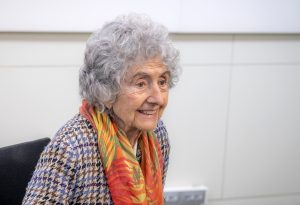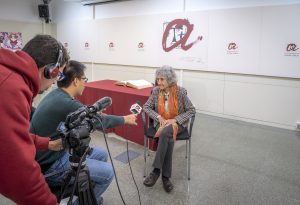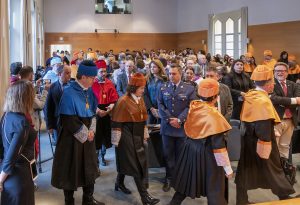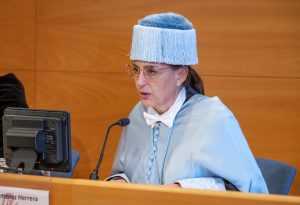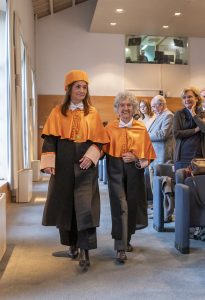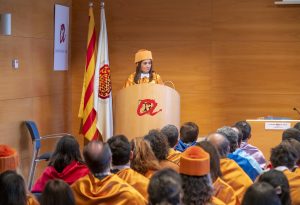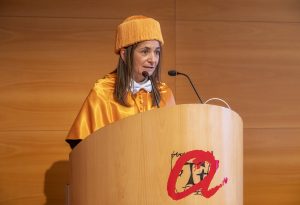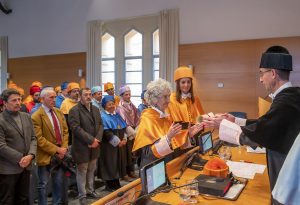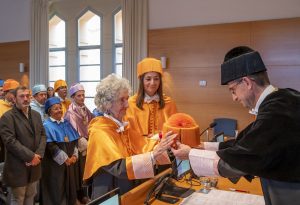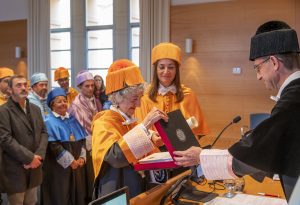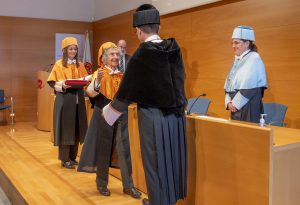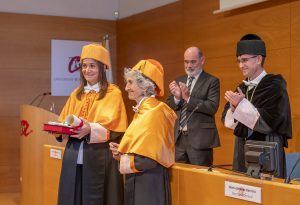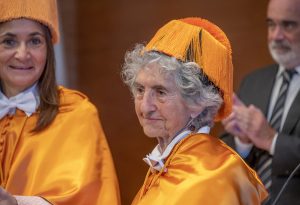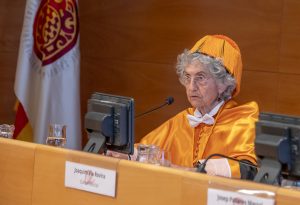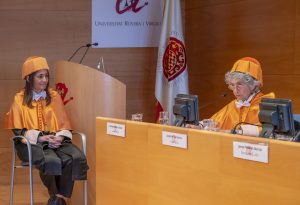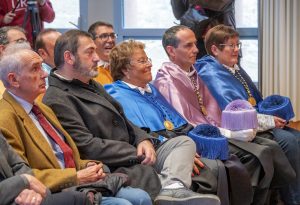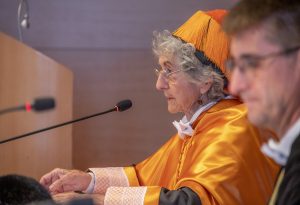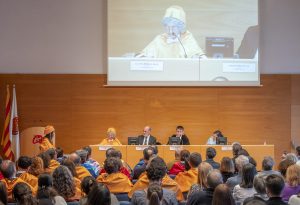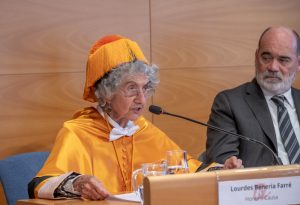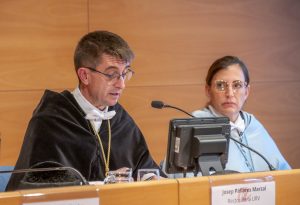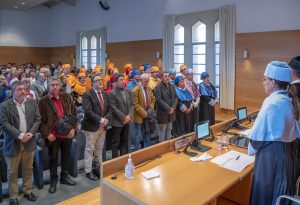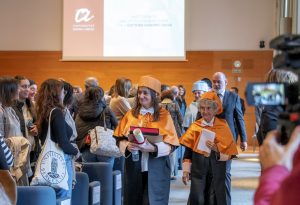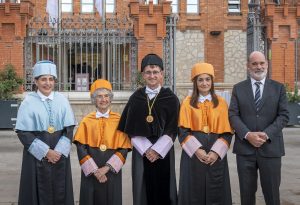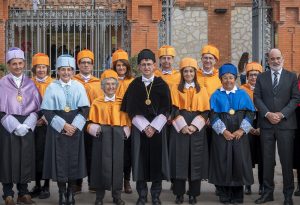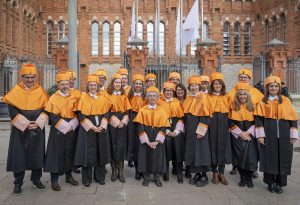25/11/2022
Lourdes Beneria, pioneer of feminist economics, awarded an honorary degree by the URV
A critic of orthodox neoclassical economic thinking, her use of the gender perspective in economic analysis led to changes in the National Accounts System and in development policies
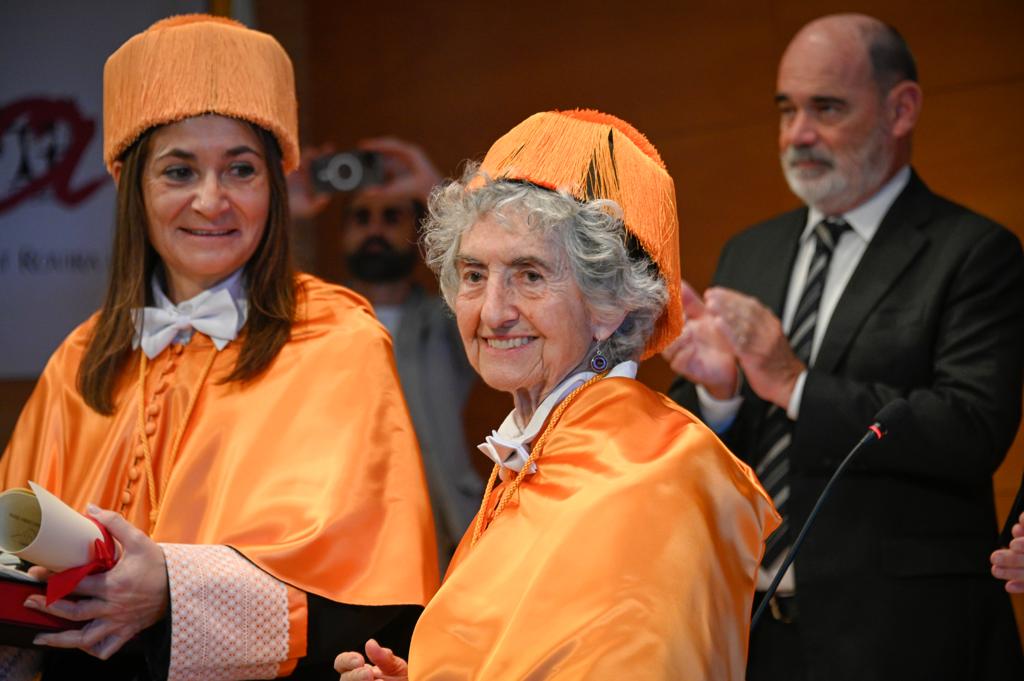
A critic of orthodox neoclassical economic thinking, her use of the gender perspective in economic analysis led to changes in the National Accounts System and in development policies
Lourdes Beneria now holds an honorary degree from the URV. A pioneer in using the gender perspective in economic analysis, she has contributed to laying the foundations of feminist economics as a current of economic thought. Her academic contributions have had practical repercussions: her studies on women’s unpaid work and the informal economy have led to changes in the National Accounts System, and her studies on the unequal impact of structural adjustment policies on men and women have highlighted the need to use the gender perspective in development policies.
Beneria has also been one of the most lucid critics of neoclassical economics, the dominant economic theories in universities and economics faculties. She denounces the fact that capitalist development is an unequal process in which not all people participate and in which gender inequalities shape the experiences, decisions and economic results of men and women.
Maria Llop, Professor of Economics at the URV, mentioned all these aspects in her speech as sponsor of the new honorary degree holder. Llop recalled Beneria’s origins and that, despite the political and social situation, she managed to “transcend the limits of the Spanish frontiers, as well as the political and intellectual ones.” Born in Vall de Boí in 1937, she was one of the first graduates in Economics in Catalonia and one of the first academics to go abroad, first to the London School of Economics (Great Britain) and then the University of Columbia, where she obtained her doctorate, until she joined Cornell University, in the United States.
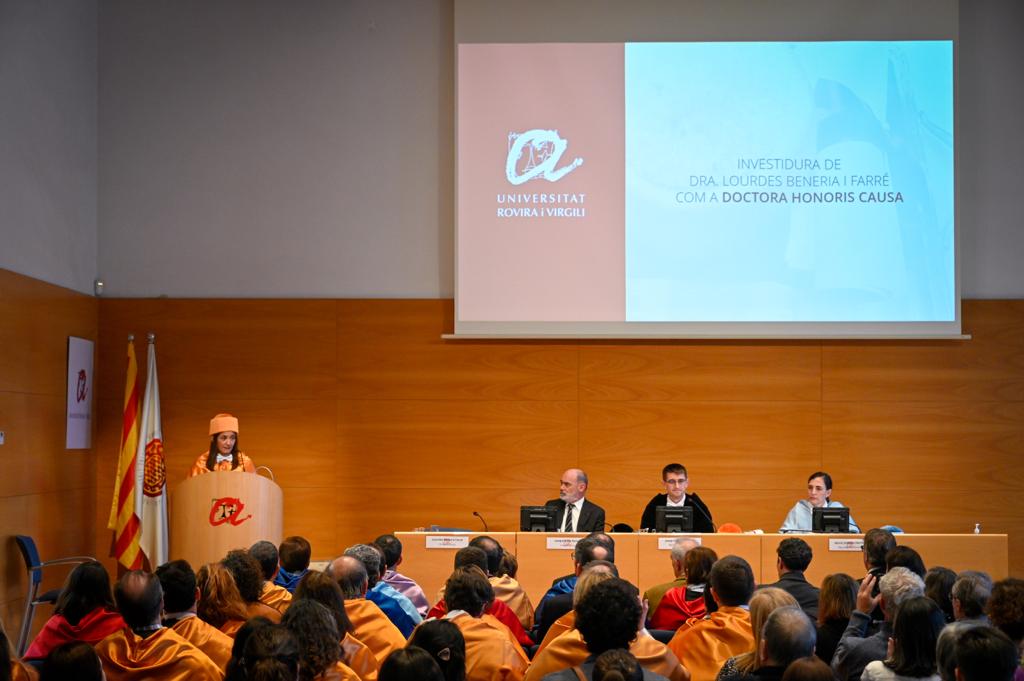
Academically she has always had a “direct involvement in social progress and labour rights” through her collaboration with international organisations such as the International Labour Organisation, the United Nations Development Fund for Women and the World Bank.
Beneria made specific mention of this double role, which led her to take part in the first report of the United Nations Development Programme (UNDP) in 1995, when she coincided with Amartya Sen, who also holds an honorary doctorate from the URV and who was the focus of much of her speech. She spoke of his contributions to Economics, both as the ideologue behind the concept of human development and for his conceptualisation of the family, which has been used by feminist economists who do not accept the neoclassical view.
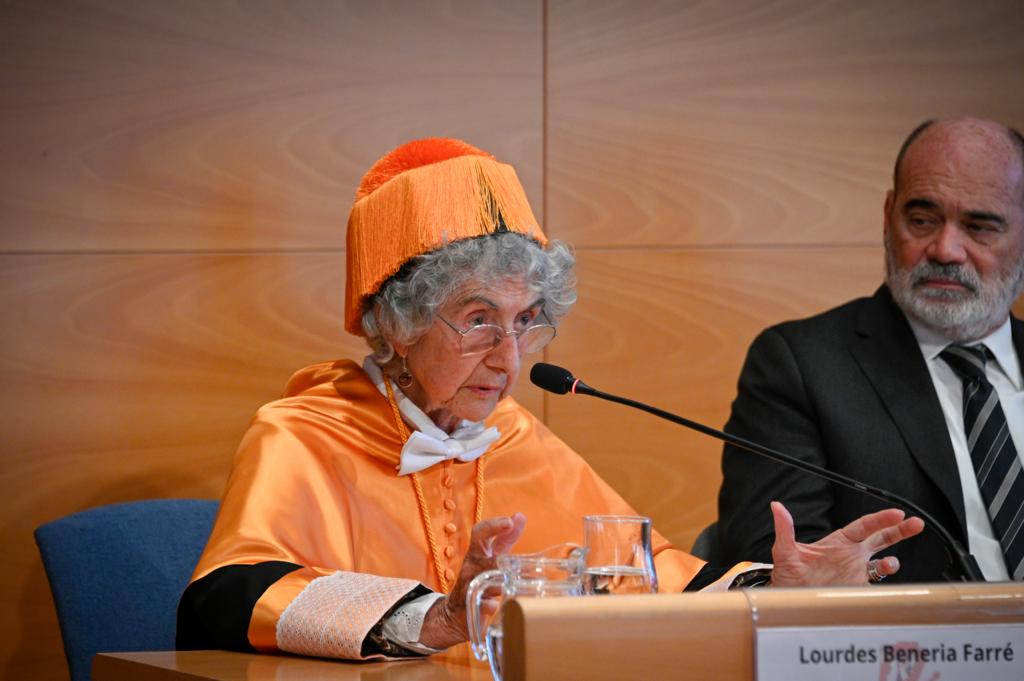
Beneria went on to review the contributions of feminist economists, from Humphries’ conceptualisation of the family, which has been shown to be inaccurate in view of the repercussions of structural adjustment policies in Latin America between the 1980s and 1990s, which Beneria herself knows well because of the time she spent working there. She also spoke of the contributions of Heidi Hatmann, “who did not focus well on the differences in the division of labour between family members, nor did she give much importance to the centrality of women’s domestic tasks.”
Sen, on the other hand, proposed the notion of “cooperative conflicts”, which “opened up a promising avenue for analysing the family and studying the relationship between its members and gender inequalities,” said Beneria. This was the basis for the drafting of the Human Development Index which, since 1995 at the UN offices, has been drawn up every year and is useful for comparing the development of countries.
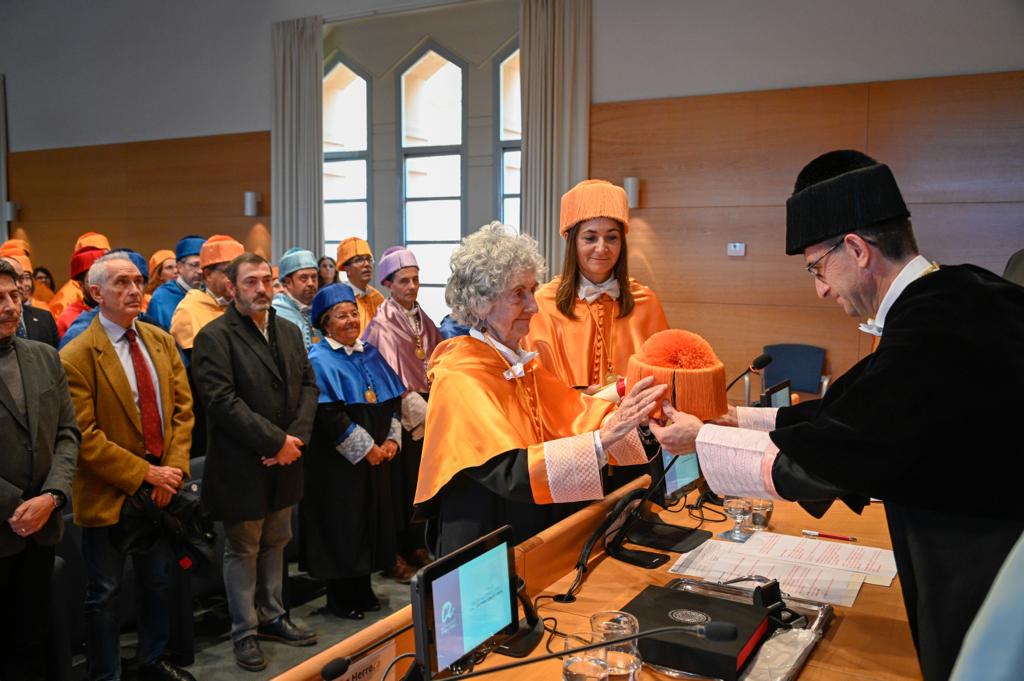
The Rector of the University, Josep Pallarès, pointed out that with Beneria the URV now has 50 honorary degree holders, among whom there are 12 women. He thanked Beneria because “her studies and contributions to the economic sphere, always from a gender perspective, pave the way to new ways of interacting” and “her courageous criticism of the current capitalist system and her insistence on the need to design a new, more sustainable economic model.”
To welcome her into the URV scientific community as a new honorary degree holder, the Rector presented Lourdes Beneria with the diploma that accredits the highest distinction the University can give, the medal and the academic cap, as well as the attributes that go with the distinction: the book of science and wisdom, the ring given as a symbol of the privilege of sealing the opinions of science and the profession, and the white gloves.
Gallery of images
Complete ceremony
More news about: Honoris Causa
